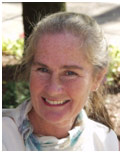By Jeff Brumley
As high-profile, science-versus-faith debates rage across the nation, a handful of American seminaries, including two with Baptist ties, are pursuing the notion that reason and religion are compatible and even complementary.
Andover Newton Theological School and Wake Forest University School of Divinity are among 10 seminaries recently awarded a combined $1.5 million in grants to integrate science into their curricula.
The “Science for Seminaries” grants were announced this month by the American Association for the Advancement of Science. The association’s funding was provided by the John Templeton Foundation.
With individual grants ranging from $90,000 to $200,000, each institution agreed to combine science with at least two existing core courses such as biblical studies, church history or pastoral theology.
“This approach will bring science into the core of seminary theological education, impacting individual seminaries as well as the ministries in which graduates serve,” AAAS said.
Officials and educators from Andover Newton and Wake Divinity say their hope is to produce ministers knowledgeable about science and capable of guiding others through the controversial debates creating so much dissension in society.
“In today’s world, often times religion and science are perceived as being at war and in our view they are not separate fields of endeavor but are bound together,” said Jennifer Craig, vice president for institutional advancement at Andover Newton, which is affiliated with the American Baptist Churches USA and the United Church of Christ.
The Massachusetts seminary received $161,000 to be used over three years, beginning in full in the fall of 2015.

“It’s important that our leaders are conversant in Bible, theology and ethics, but also in science,” said Craig, who wrote the grant proposal for the school.
A new generation of pastor is needed to help bridge the gaps between different groups skeptical that science and religion are compatible, said Kevin Jung, associate professor of Christian ethics at Wake Divinity.
One group consists of Christians who believe science is hostile to their faith. Another is Christians who believe the two fields are simply unrelated to each other, said Jung, who was the main grant writer for the $150,000 Wake grant.
“We want to facilitate meaningful dialogue between science and religion,” Jung said.
At Wake, professors will add science components in the areas of Bible, church history and theology, Jung said.
Among them is Bill Leonard, professor of church history, who will develop a course titled “The Scopes Trial: Darwinism and Anti-evolution in American Religion.” The course will use the 1925 trial as a case study examining the evolution/anti-evolution debate.
Jung said he will blend studies from evolutionary psychology, sociobiology and neuroscience into his existing “Foundations of Christian Ethics” course.

Another existing course that explores the cosmos, gods and humanity will include recent scientific studies of cosmology and the evolution of human life.
Jung said the Wake grant is for two years but the goal is, after surveying student and faculty interest, to permanently incorporate the new elements into its courses.
At Andover Newton, Christian theology professor Mark Heim and Christian ethics professor Nimi Wariboko will be leading the effort to develop curricula. They will be working with various Boston-area scientists to develop science modules for systematic theology and Christian ethics courses, the school said in a news release.
The idea in some classes will be to show how evolutionary and neurological science relate to belief in God, Craig said.
But she added that students taking ethics and theology courses will still be learning about ethics and theology.
“It’s not like it’s taking over the course,” she said of the science modules.
The underlying motivation behind the AAAS grants and the schools who applied for them isn’t to create pastor-scientists but culturally competent ministers.
“We don’t want our graduates shying away from questions that are important because they don’t have the scientific vocabulary or knowledge to discuss them thoughtfully,” Sarah Drummond, dean of faculty and vice president for academic affairs, said in a statement released by Andover Newton.
In a news release, Wake Divinity drew parallels between the science grant and Wake Forest University’s historic advocacy of constructive dialogue between religion and science.
The grant will help the seminary make use of its relationship with the university, said Gail O’Day, dean of the School of Divinity.
“Our students will be even more creative and effective religious leaders because they will be informed and articulate about the scientific perspective and contributions of the issues of our day,” O’Day said.
The other eight participating schools are Catholic University of America in Washington; Columbia Theological Seminary in Decatur, Ga.; Concordia Seminary in St. Louis; Howard University’s School of Divinity in Washington; Jesuit School of Theology at Santa Clara University in Berkeley, Calif.; Lutheran Theological Seminary in Gettysburg, Pa.; Multnomah Biblical Seminary in Portland, Ore.; and Regent University School of Divinity in Virginia Beach, Va.
